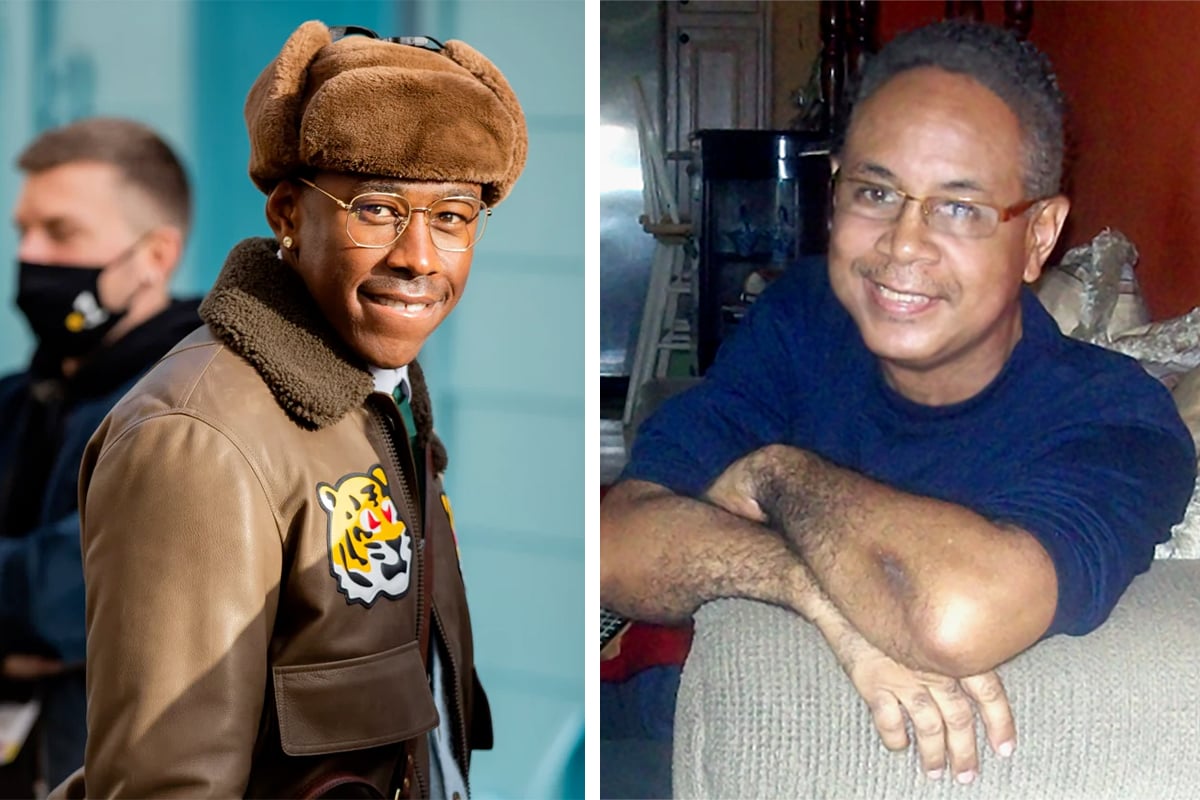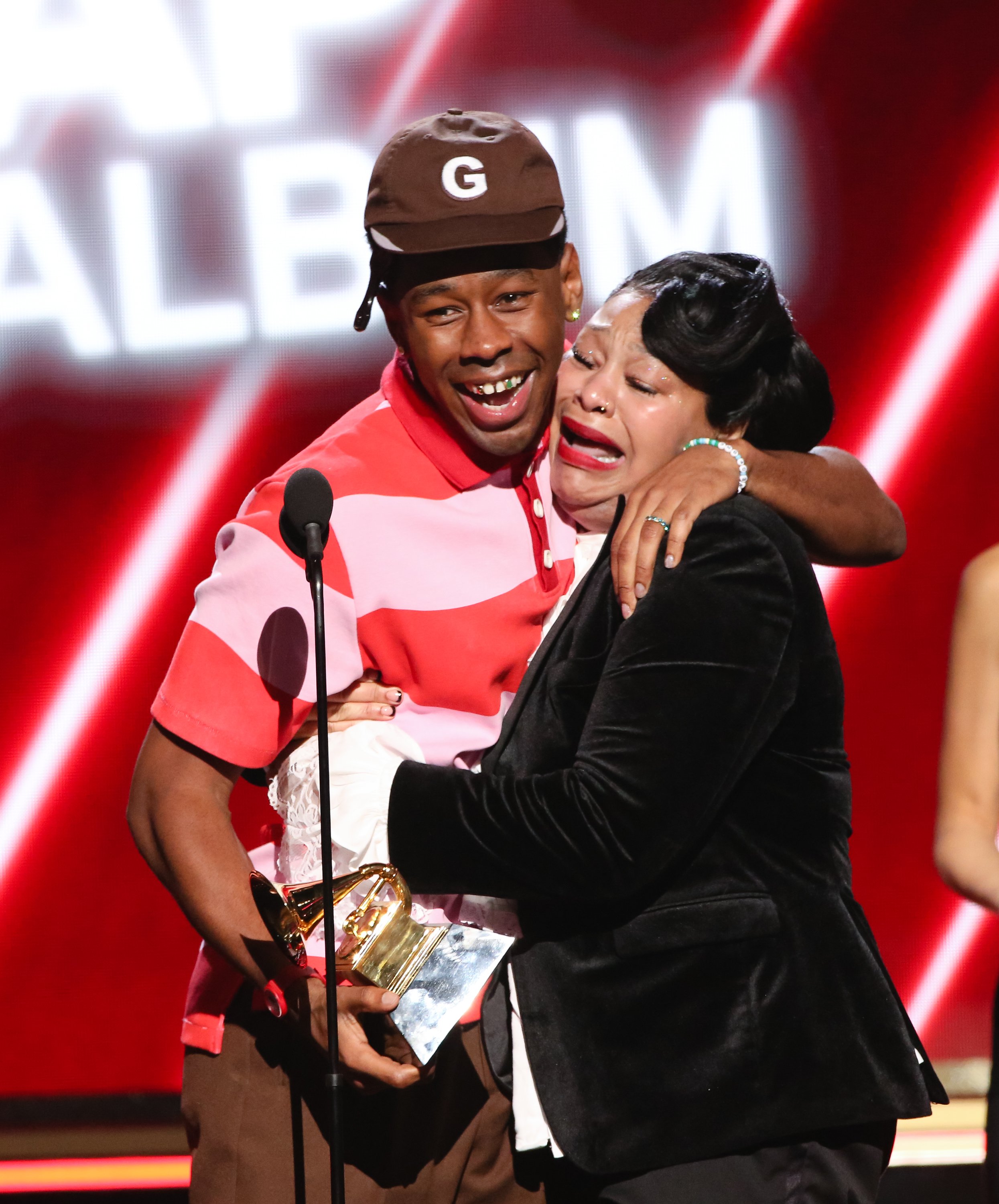Is it possible for a musicians personal history, particularly the absence of a parent, to significantly shape their artistic vision and propel them to extraordinary heights? The answer, in the case of Tyler, the Creator, seems to be a resounding yes, with the complex dynamic surrounding his father casting a long shadow that has profoundly influenced his creative output and persona.
Tyler Gregory Okonma, known globally as Tyler, the Creator, is a multifaceted artist. He is an American rapper, singer, songwriter, record producer, and music video director. Born on March 6, 1991, in Ladera Heights, California, his story is one of innovation, artistic bravery, and navigating the complexities of family and identity. His creative journey, marked by unconventional music, distinctive style, and a fiercely independent spirit, has captivated audiences worldwide. A deep dive into his life reveals that his relationship, or lack thereof, with his father is an essential chapter in his extraordinary narrative.
| Category | Details |
|---|---|
| Full Name | Tyler Gregory Okonma |
| Date of Birth | March 6, 1991 |
| Place of Birth | Ladera Heights, California |
| Nationality | American |
| Known For | Rapper, Singer, Songwriter, Record Producer, Music Video Director, and Fashion Designer |
| Father | Walter Whitman (Believed to be of Igbo and Nigerian descent) |
| Mother | Bonita Smith |
| Education | Self-taught, dropped out of school. |
| Notable Albums | Goblin (2011) Wolf (2013) Flower Boy (2017) IGOR (2019) Call Me If You Get Lost (2021) CHROME (2024) |
| Key Songs | Yonkers, EARFQUAKE, See You Again, NEW MAGIC WAND, Answer, IFHY |
| Other Ventures | Founder of Odd Future collective, Golf Wang clothing line, Golf le Fleur perfume and fashion brand, creator of the television show "Loiter Squad". |
| Romantic Relationships | Reportedly romantically linked to model Reign Judge in 2022 |
| Awards and Accolades | Grammy Award for Best Rap Album (IGOR), Grammy Award for Best Rap Album (Call Me If You Get Lost), MTV Video Music Awards |
| Reference | The Recording Academy |
The narrative surrounding Tylers father is one of absence. The man, believed to be named Walter Whitman, is of Igbo and Nigerian descent, and he left the family when Tyler was very young. Consequently, the Grammy-winning artist has rarely, if ever, met him. This absence is a recurring theme that echoes through Tyler's art, infusing his music with introspective lyrics and offering glimpses into the emotional landscape shaped by this familial void.
- Exploring The World Of Mkvspoint S Your Guide To The Ultimate Streaming Experience
- Unveiling The Journey Of Matt Freeman At Uconn
Tyler's creative process and artistic evolution have been significantly shaped by the circumstances of his upbringing. The absence of his father, a formative experience, is not merely a detail in his biography; it has become an integral part of his artistic identity. He has, on numerous occasions, referenced his father, sometimes indirectly, sometimes directly. In the song "Answer," he explores a longing for connection, singing about the desire to finally meet his father. This isn't an isolated instance; various tracks throughout his discography bear the imprint of this absent relationship, revealing a constant exploration of his feelings and the complexities of this familial dynamic.
The impact of his father's absence is also evident in his personal evolution and how he views the world. Tyler has, in many interviews, indicated that the unconventional nature of his upbringing, marked by the absence of a traditional father figure, has, paradoxically, been a source of strength. In a 2014 interview with Larry King, when asked about his father, Tyler offered a characteristic mix of uncertainty and acceptance: "I think I did at 12 supposedly, but I dont really know." This uncertainty encapsulates the enigmatic nature of the relationship.
One of the most thought-provoking aspects of the story surrounding Tyler and his father is the conflicting emotions that surface. While the absence is undeniable, there's also a sense of acceptance, a suggestion that, despite the void, Tyler has found a way to navigate his life. He has, in many instances, expressed feeling "stoked" about not having his father in his life. This might appear contradictory, but it could also be interpreted as a coping mechanism, a way to protect himself from the emotional impact of abandonment. In a telling moment on Tylers album, "Chromakopia", his mother, Bonita Smith, suggests that the separation was not entirely the father's fault, adding yet another layer of complexity to the narrative.
- Exploring The Allure Of Sondra Blust An Insight Into Her Onlyfans Journey
- Unveiling The Life Of Rae Lil Blacks Father A Journey Through Family And Influence
This complexity is what renders Tyler's music and his persona so captivating. He does not shy away from the challenging emotional terrains of human experience, instead weaving them into his artistic expression. His work is often characterized by an exploration of identity, loneliness, the search for belonging, and the negotiation of difficult emotions. These elements, deeply rooted in his personal experience, resonate with fans who are drawn to his authenticity and willingness to confront vulnerabilities.
The musical universe Tyler constructs is a fusion of various styles. Hip-hop, R&B, and experimental sounds all coalesce in his songs, resulting in a style as distinctive as the artist himself. His lyrics, which touch on themes of self-discovery, social isolation, and personal relationships, reveal his capacity for vulnerability. The unique blend of musicality and lyricism solidifies Tyler's status as a cultural icon, a voice for a generation grappling with identity and belonging. His music is a reflection of a unique perspective, molded by lived experiences, including the impact of his absent father.
The influence of this familial void extends to the way Tyler has approached and managed his career. His independent spirit and artistic independence are not only defining characteristics of his professional journey but also a response to the circumstances of his upbringing. He founded the Odd Future collective and launched his successful clothing line, Golf Wang. These independent ventures are further indications of his drive to create his own world and establish his rules. This independent ethos is not only crucial to his success but also resonates with many of his followers, who are drawn to his authenticity and refusal to conform.
The mystery surrounding Tyler's father also serves to amplify the curiosity of fans. This fascination is evident in the frequent discussions and speculation surrounding his father on social media platforms. Fans continuously try to find hints and clues in Tyler's interviews, music, and public appearances, striving to get closer to understanding the enigma of his father and how it may have shaped him. This constant inquiry speaks to Tyler's ability to create a connection with his audience that goes far beyond his music. His fans feel deeply invested in his story, seeking to understand the man behind the music.
The Eric Andre Show episode that featured Tyler had a revealing moment. During the show, Tyler had a deeply emotional moment, revealing the profound impact of his father's presence. The episode underscored the long-lasting impact of his father's absence. The incident has further cemented his position as an artist who shares his personal experiences, creating an even more intimate connection with his listeners.
In his latest album, Chromakopia, the audience sees deeper insights. It seems that his father's absence played a big role in shaping his path. Tyler says he now wants to "finally settle down." His music is filled with emotions, often about relationships and personal growth. His journey shows how challenging times can inspire creativity and a unique view of the world. His story inspires, and his music gives fans a glimpse into the life of an artist, his relationships, and the creative process.
In examining Tyler's story, it is clear that the complex relationship with his father has been a significant force in shaping his creative journey. This absence has not only influenced the thematic concerns of his art but has also contributed to his fiercely independent spirit, his embrace of vulnerability, and his ability to connect with his audience on a deeply personal level. Tyler, the Creator, has transformed his experiences into art, revealing how even the absence of a parent can become a catalyst for extraordinary creative expression and the making of a cultural icon.


